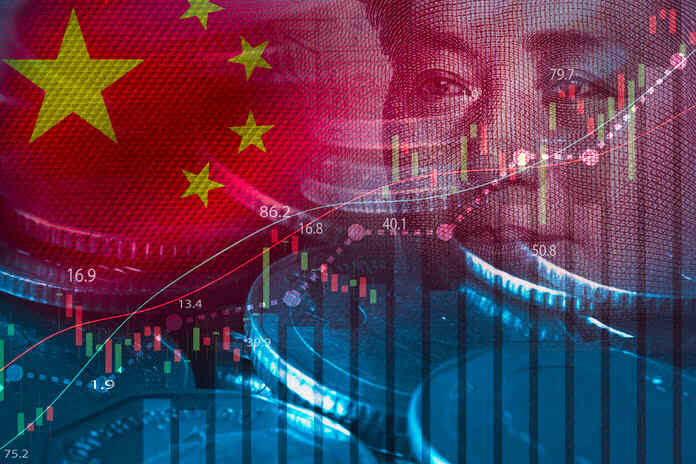The Chinese government’s persistent efforts to stimulate economic growth and restore confidence in the economy have led to a record injection of cash into the financial system and expanded support for the beleaguered property sector. Despite these measures, the market response has been muted, with the Shanghai Composite giving up an early advance and closing down by -0.56%.
The People’s Bank of China (PBOC) played a pivotal role in this strategy by injecting a net 800 billion yuan ($112 billion) of one-year loans through its medium-term lending facility, twice the amount analysts had anticipated. This record infusion aims to provide commercial lenders with increased liquidity, empowering them to purchase government bonds that support infrastructure spending. However, the challenge lies in finding the delicate balance between monetary and fiscal stimulus to support government bond sales without triggering a yuan slump.
In addition to monetary measures, the Chinese government has intensified its support for the struggling property market. This move comes amid concerning data revealing a decline in home prices for the sixth consecutive month and a weakening property investment trend. Notably, the government reduced down-payment ratios for first and second homes in Beijing and Shanghai. Given that China’s real estate market and related industries contribute about 20% to the economy, these interventions are critical.
Despite these efforts, market observers remain skeptical of the overall impact of China’s stimulus plans. Investors, seeking more robust measures, express disappointment, as previous interventions failed to accelerate economic recovery or stabilize the stock market. Standard Chartered Bank remarked, “It’s too early to call it a turning point,” highlighting persisting fragility in investor sentiment and potential risks stemming from geopolitical tensions.
The recurring pattern of short-lived market optimism following Chinese stimulus attempts raises concerns among investors. Throughout the year, Chinese equities have faced a downward trend fueled by worries about a sluggish economy, geopolitical tensions, and the ongoing property crisis. S&P Global Ratings’ Asia Pacific unit emphasized the need for more comprehensive actions, stating, “Injecting liquidity and trying to increase the supply on the financial side is helpful, but probably will not be enough if there is no willingness to spend or to invest.”
As China navigates economic challenges, the effectiveness of its stimulus measures remains a critical factor in shaping market sentiment and investor confidence.
Featured Image: Freepik















